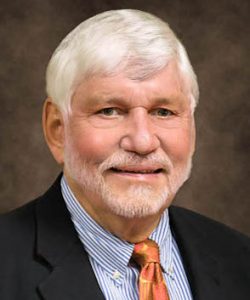 By Tom Hubler, Executive Consultant
By Tom Hubler, Executive Consultant
This article is Part 2 of a continuing series about the delicate issues among family businesses. Part 1 discussed financial vs. emotional equity and this article deals with trust and gratitude, which are necessary for emotional equity.
Trust Builds Emotional Equity
When family members do not trust each other, everything suffers. Trust does not come automatically in a family. It is provocative, paradoxical, and implies risk. It is a reciprocal relationship involving a mutual reliance that is both emotional and behavioral. Trust is necessary to build is emotional equity. It carries the promise, “I will be there for you when you need me.” Thus, trust requires individuals to be vulnerable to each other. And that is a challenge even with the people we love in the family and the business.
All businesses strive to build the equity of the company. It is how a business grows. But I have learned that in family businesses, stakeholders must also build the emotional equity of the family. No matter how large or small, simple or complex, a family business must be committed to strengthening family relationships and building family trust. Emotional equity increases when families put time and energy into their relationships, when they do things together.
Life happens. Business happens. Human nature is never perfectly consistent and completely predictable. What one person expects may seem odd to another. Individuals may not openly share what they expect from each other. Yet trust erodes when one person does not live up to another’s expectations. This makes it virtually impossible to avoid hurt feelings and the mistrust that results. When mistrust occurs in a family that has a business, the ramifications are doubly debilitating.
Also, when the family is the business, there is no easy way to step away or separate from work. Family members can weather frictions when they have banked copious amounts of emotional equity. That equity is measured in strong family relationships between people who trust each other. It is further reinforced by a family that has learned to express gratitude.
Gratitude is Inspirational
In business families, gratitude is a secret ingredient that can lift a company above its competitors. The advantage is gained by showing gratitude to employees and working family members. It can be frequent use of ‘please’ and ‘thank you’ taught from childhood. But it must be authentic. Practiced, not performed. It must come from the heart.

I have come to realize that gratitude needs to be consciously practiced, starting with recognition of the good in our lives. In that way gratitude, like love and trust, projects an inward feeling outward. It reinforces our sense of purpose in our careers and strengthens a sense of community in the family.
Teamwork is a non-sentimental expression of gratitude. It turns us from wishing for what we do not have to appreciating what we do have. It focuses on values, not hungers. Gratitude grows when we strive to ‘find the flow.’ Mihaly Csikszentmihalyi describes three aspects that produce flow in a person’s life, which reinforces emotional equity, or ‘psychic energy.’ The three aspects are: work, active leisure time, and relationships.
Gratitude, trust, and love underpin each of these aspects and they are even more critical in families of business and wealth because such families are at greater risk of breakdown which would affect not only family members, but the enterprise, and the future.
The Gratitude of Gratian
I am reminded of a wonderful client who recently passed away. I will call him ‘Gratian,” Latin for grateful. Gratian provided the leadership to help his uncles and brothers transform their company. Eventually he bought out his relatives and transferred the business to his two adult children. Through all these transactions there could have been chaos, disappointment, and discord. Instead, because of Gratian’s honesty, integrity, and loyalty – his gratitude – the family never wavered, and the company never faltered.
Looking back, I marvel that Gratian taught himself to be grateful. He ‘wasted’ work time to meditate or pray. Each day, he took a break from his busy schedule for a personal moment in his office to count his blessings and appreciate his family. And he acted on that. And that made all the difference.
For more information about family businesses, visit our Family Business Service page.
